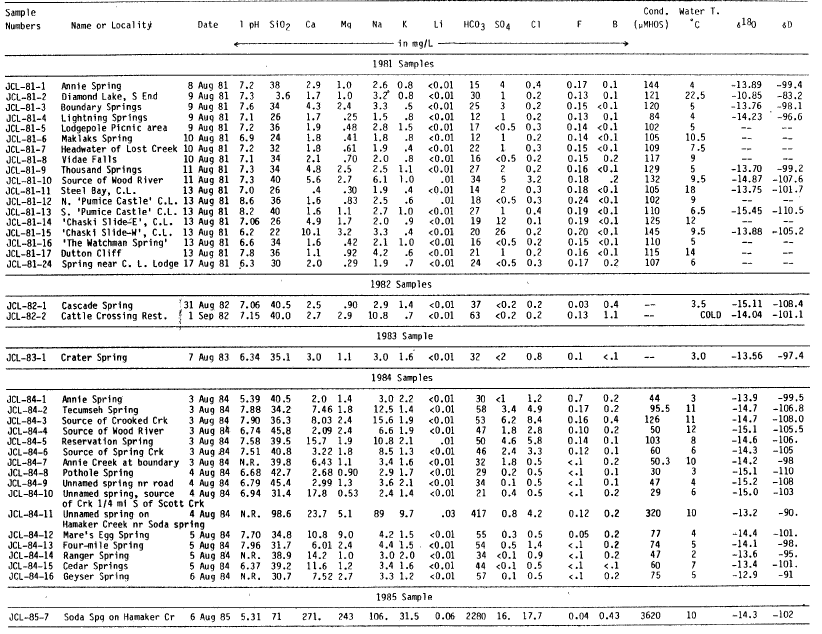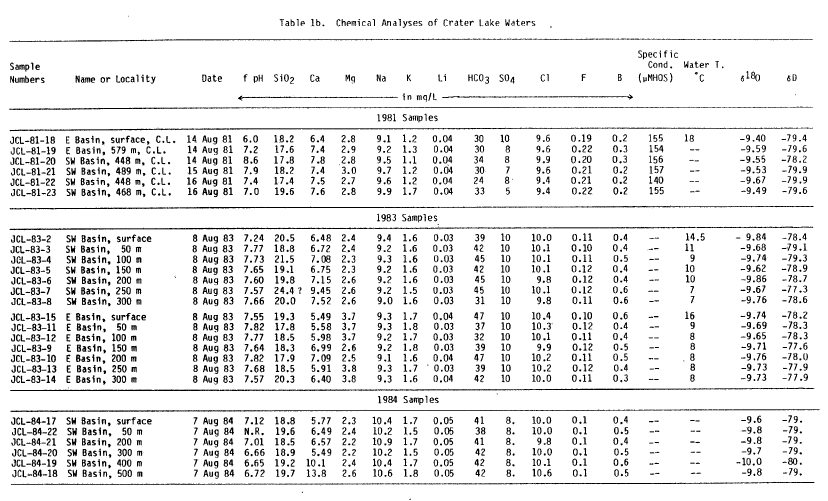Chemical Analyses of Waters from Crater Lake, Oregon, and Nearby Springs
by J. Michael Thompson, L. Douglas White and Manuel Nathenson
Introduction
Crater Lake, Oregon, is located in the 6800 year old caldera of Mount Mazama (Bacon, 1983). The lake receives 85 percent of its inflow by direct precipitation with the remainder coming as inflow from the surrounding drainage area. The lake covers 78 percent of its drainage area. The lake has no surface outlet, but loses 72 percent of its inflow by leakage and 28 percent by evaporation (Phillips, 1968). Van Denburgh (1968) recognized that chloride and sulfate and perhaps silica and sodium were anomalously-high in the lake and suggested that these constituents may be contributed by thermal springs at depth in the lake. Based on unpublished analyses, Van Denburgh also suggested that the lake is quite uniform in chemical quality both areally and vertically.
The purpose of this paper is to present chemical and isotopic data for Crater Lake and cold springs emanating on the flanks of Mount Mazama in order to understand questions concerning the lake dynamics and the relationship of the lake water to nearby cold springs. The pertinent questions are: 1) Are the lake chemistry and isotopic composition anomalous compared to-nearby cold springs? 2) If so, are there any springs that show a significant component of Crater Lake water mixed with shallow ground water? 3) How well mixed chemically and isotopically is the water in Crater Lake? and 4) Do the dissolved chemical constituents in Crater Lake water indicate an input of thermal water?
Table 1 contains the complete chemical and isotopic data previously discussed in Thompson and White (1983), Salinas and others (1984), and White and others (1985). These abstracts contained only preliminary answers to the questions posed above. Additionally, inconsistencies in some of the previously reported data have been identified, and the values have been redetermined and are given in Table 1. A complete study of the methods of chloride analysis was also made in order to calculate the accuracy and precision of various methods of analysis.
 |
| Table la. Chemical Analyses of Springs in the Vicinity of Mount Mazama |
 |
| Table 1b. |
***previous*** — ***next***

